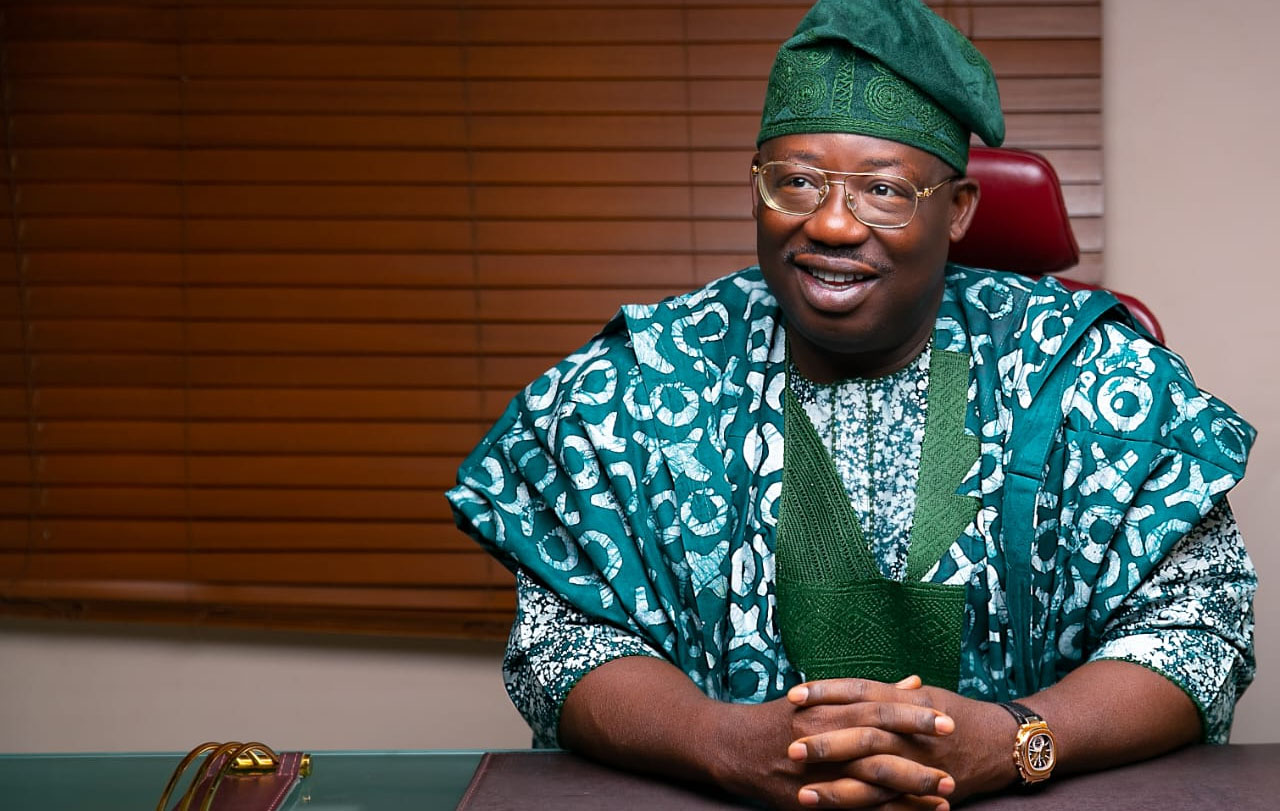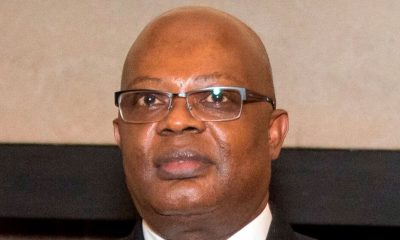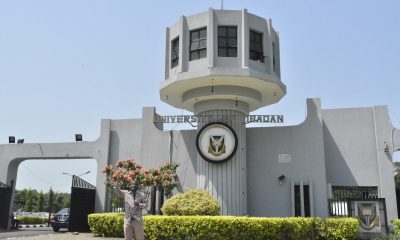News
University admissions: Nigerians want 25-year-old quota policy scrapped

- ‘Policy attacks excellence, celebrates mediocrity’
- Bayero lecturers defend policy, blame northern leaders
Academics, among other Nigerians, have called for urgent review or scrapping of the nation’s quota policy in varsity admissions to promote equity and national development.
In a bid to ensure uniform development of the country’s educational sector, the Federal Government, 25 years ago, formulated a policy of granting preference to candidates seeking admission into universities across the country, from states considered to be educationally disadvantaged at the time.
Still justifying the policy in the context of today’s Nigeria, Head of Information at the Joint Admission and Matriculation Board (JAMB), Dr. Fabian Benjamin, said the policy was designed to unite the nation by giving everybody from every state of the country, an opportunity to be educated and have a sense of belonging “because every Nigerian is a stakeholder in the polity.”
But former vice-chancellors, Femi Mimiko, Ayodeji Olukoju, Prof Adebayo Adeyemi; the Head, Department of Educational Foundation, University of Lagos (UNILAG), Prof. Ngozi Osarenren and Senior legal and Programme Officer, Human Right Law Services (HURILAW) Collins Okeke noted that the policy had been overtaken by 25 years’ events. They argued that quota system in university admissions has been misapplied and should, therefore, be discarded.
Benjamin said the policy, which favours the educationally disadvantaged states will have to continue, because the gap it was intended to close has not yet totally been bridged.
He explained that giving peference to candidates from these states goes beyond merely giving admission to students.
He said the policy was introduced in the 1970s after the Nigerian civil war. “There was mutual suspicion among the ethnic groups and government was looking for a platform to unite the people. JAMB became one of these platforms that could bring the various ethnic groups to form a nation. The policy was designed to accommodate this interest.”
Guided by the policy, Bayelsa, Ebonyi, Jigawa, Zamfara, Adamawa, Bauchi, Benue, Borno, Cross River, Gombe, Jigawa, Kano, Kaduna, Katsina, Kebbi, Kogi, Kwara, Nasarawa, Niger, Plateau, Rivers, Sokoto, Taraba and Yobe were categorised as educationally disadvantaged states; while Ogun, Lagos, Osun, Ondo, Ekiti, Abia, Anambra, Enugu, Delta, Imo, Akwa-Ibom and Edo states were grouped as educationally developed states.
But stakeholders wondered why, 25 years after the enactment and execution of the policy, states like Cross River, Rivers and Kano with several tertiary institutions, would still be classified as educationally less advantaged.
In the policy, merit is given 45 per cent. This covers all candidates from the country; it gives automatic admission once you meet the cut-off mark. The second is catchment, which is 35 per cent; while the third factor is educationally less advantaged states, which is 20 per cent.
Stakeholders also demand an end to the policy, which they argued, deny candidates who merit admission, the opportunity to gain access into higher institutions of their choice.
Okeke, Huriwa boss, said the policy had outlived its usefulness, describing it as discriminatory, encouraging mediocrity and discouraging excellence.
“Instead of the quota system, there should be incentives for states that do well educationally to encourage them and ginger others to perform better while teachers can be taken from the south and pay more so that they can complement their northern counterparts and effectively impart knowledge. Quota system creates a mediocre kind of educational system,” he said.
Mimiko, erstwhile vice chancellor of Adekunle Ajasin University, Akungba (AAUA), said while there was nothing wrong with the policy, it should be implemented in such a way that it would not undermine merit.
Mimiko, a professor of political science at the Obafemi Awolowo University (OAU), Ife lamented that the quota system had been implemented in such a way that calls to question the nation-building objective of the country.
He said, “The quota system is supposed to be a stop-gap measure; use it to bring up the disadvantaged and thereafter put a stop to it, and start treating everyone on the same standards.”
He added that the space for the quota system must be a “very small” percentage of the spaces available and that in the listing of those to be accorded space through a quota system, the spaces should still go to the best in such groups. He further suggested that the quota system should be implemented in such a way that it would not give the slightest hint that it was meant to reward “lazy ones.”
To address the lopsidedness, Mimiko called on governments in areas considered educationally-disadvantaged to invest in the sector.
Prof. Adeyemi, former vice chancellor of Bells University of Technology, Ota, lamented that the quota system had been misapplied. To address the problem, he advocated a national cut-off point for prospective students.
“I could recollect my serving as admissions chairman (officer) for the Faculty of Technology at the OAU between 1986 and 1991; admissions were based on the quota system. At that time, I think it was based on the following parameters; merit (40%), catchment (30%), educationally disadvantaged states (20%) and discretion (10%).
“Pass mark at that time was 200 to gain admission into Nigerian universities. At no time did we go below the minimum pass mark regardless of the group a candidate belonged to.”
While describing the intention of the quota system as noble, Olukoju lamented that beneficiaries had taken what ordinarily should be a privilege as a right.
He said the quota system had outlived its usefulness and should be phased out.
According to him, the system is giving undue advantage to some people, promoting complacency and mediocrity on the part of the beneficiaries.
Olukoju, who is of the Department of History and Strategic Studies, University of Lagos, said the policy was intended as a stop-gap but the beneficiaries, who are also in command of federal power, retained it to their own advantage, even as their educational status has improved over time.
“It is time to ask governors of the so-called disadvantaged states to account for their budgetary allocation to the education sector in their states. The affirmative action has been abused by its beneficiaries, who have worn it as a badge of honour. Every policy has a life span and this one has become obsolete. It was supposed to encourage the backward states to lift themselves up by their bootstraps but it has unfairly rewarded and reinforced mediocrity and an entitlement mentality.
For Osarenren, if students, regardless of their states, were given sound knowledge; they would effectively compete among themselves.
The scholar noted that the admission policy had only succeeded in sowing a seed of discord between parents and children from different regions.
“Every child must be treated well, if you admit a child with a lower score, how would such a child compete equally with others? The disparity in the admission system showed that government is merely paying lip service to qualitative education.
Also, a former chairman of Academic Staff Union of Universities (ASUU), University of Ilorin chapter, Dr. Usman Raheem, says the quota system has outlived its relevance.
Raheem, in a chat with The Guardian in Ilorin, argued that the quota system for admission should be jettisoned and should revert to merit.
The ex-ASUU boss, who is a lecturer at the Department of Geography and Environmental Management of the institution, added that the system had failed to solve the problem of imbalance in the nation’s social strata.
He compared the system to a situation where the most qualified elder brother for a post was being asked to step down for the least qualified brother for the same position.
“In the process, many qualified candidates are daily dropped for the average ones under the guise of catchment zones and educationally disadvantaged states. However, where a particular area has the facilities like a higher institution for instance, I think it will not be out of place to give the people there “a little preference” above the others,” he added.
However, Profs. Tanko Adamu and Barde Ibrahim of Bayero University, Kano (BUK) argued that the quota policy should be retained, as the objective behind it had not been fully met.
Adamu, a professor of Geography, contended that there was still a wide gap between the south and the north in the educational system, which still needed time to bridge.
He lamented that successive governments in the region had failed to give priority attention to education.
According to him, for the gap to be bridged, attention has to be given to basic education, regretting that public primary education had been neglected over the years in the North.
“If you want to bridge any gap, the fundamental work is actually at the basic education level, and we all know that the public primary education system has been neglected over the years. Successive governments have not been focusing on this area, which is actually the key to addressing the gap between the two regions.
“We are not doing as well as we should in the north, so there is no way we can catch up with the South,” he maintained.
He called on leaders in the region to give adequate training to teachers in the area.
“We do not value education in a way that we can sit down and plan properly and I think that is where the problem is,” Adamu stated.
For Barde, a professor of Accounting, the quota system is still in order. He likened it to the 13 per cent derivation enjoyed by oil-producing states.
He also argued that the quota policy was still relevant because the North was still behind the South and called for the establishment of more schools in the region.
-The Guardian
News
Libya nabs three Nigerians over drug trafficking

Libya nabs three Nigerians over drug trafficking
The Samnu Police Department in southern Libya detained three Nigerians for drug trafficking.
According to a statement issued by Migrant Rescue Watch on X (previously Twitter) on Sunday, the suspects were apprehended carrying a quantity of hashish that officials believe was meant for sale.
The arrests were made during a targeted operation in the town of Samnu, Murzuq region, which is known for smuggling and human trafficking due to its proximity to Libya’s southern borders.
READ ALSO:
- EFCC arrests 36 suspected internet fraudsters
- Obama reacts as Trump freezes $2.3b Harvard University funding
- Peter of P-square testifies against brother in fraud case
This operation is part of a larger security effort to combat drug-related crimes and cross-border trafficking of migrants.
The suspects’ identities have not yet been made public. Authorities acknowledged that the case had been turned over to the public prosecutor for further investigation and judicial action.
The statement said. “Samnu Police Dept. arrested 3 #migrants of Nigerian nationality on charges of drug trafficking. The trio were found in possession of a quantity of hashish earmarked for sale. The case was referred to public prosecution.”
Libya nabs three Nigerians over drug trafficking
News
NIS expands contactless passport renewal to United States, others

NIS expands contactless passport renewal to United States, others
The Nigeria Immigration Service (NIS) has announced the expansion of its Contactless Biometric Passport Application System to several countries in the Americas.
In a recent statement by ACI AS Akinlabi, Service Public Relations Officer at NIS Headquarters in Abuja, confirmed that the service under Comptroller General Kemi Nandap is rolling out the next stage of implementation across Brazil, the United States, Mexico, and Jamaica this month.
The contactless system, which enables Nigerians living abroad to renew their travel document without physically visiting passport offices for biometric enrollment, went live in the United States on April 11. Mexico, Brazil and Jamaica are scheduled to gain access on April 14.
READ ALSO:
- I don’t have a second wife or family – Super Eagles striker Brown Ideye
- OAU student electrocuted while retrieving football from nearby compound
- Bomb blast: Senator Ndume visits victims at hospital, offers financial support
“This expansion represents our commitment to innovative and efficient service delivery to Nigerians anywhere in the world,” said ACI AS Akinlabi, Service Public Relations Officer at NIS Headquarters in Abuja.
The application system is currently available on the Google Play Store as “NIS Mobile” and allows passport renewal without in-person biometric enrollment. An iOS version for Apple devices is under development and will be released soon, alongside an enhanced version of the Android app to improve user experience and accessibility.
The NIS further confirmed that the Contactless Passport App is now operational in Canada, the USA, Mexico, Jamaica, Brazil, Europe, and Asia. Australia and Nigeria itself remain pending, with implementation dates to be announced in the future.
NIS expands contactless passport renewal to United States, others
News
Tariff: NACCIMA warns against economic instability, job losses

Tariff: NACCIMA warns against economic instability, job losses
The Nigerian Association of Chambers of Commerce, Industry, Mines, and Agriculture (NACCIMA) has expressed fear that unless the Federal Government takes deliberate steps to increase Nigeria’s non-export earnings, the current global tariff war may lead to job losses, low foreign exchange inflow, and economic instability.
This was the position of the President of NACCIMA, Dele Oye, as the chairman at the Vanguard Economic Discourse 2025 with the theme, “Nigeria’s Economic Outlook 2025: Hardship and Pathways to Sustainable Recovery”, held last week in Lagos.
Among other things, Oye who is also the Chairman of the Organised Private Sector of Nigeria (OPSN), emphasized the need for a viable and affordable homegrown democracy.
His words: “In this pivotal moment, we must recognize and confront the significant challenges before us—challenges that have been magnified by the advent of America’s “America First” policy.
READ ALSO:
- Portable arrested over alleged defamation against Osupa
- Varsity strike looms as NASU alleges secret ASUU-FG deal on allowance
- Despite trade spat with US, China exports rises 12.4%
“This paradigm shift in global trade, driven by protectionism and tariffs, presents a unique and formidable array of obstacles for developing nations such as ours.
“The world we once knew, one characterized by cooperative, rules-based trading systems under the World Trade Organization, has given way to an environment fraught with uncertainty. This transformation not only disrupts global markets and supply chains but poses an acute threat to our competitive standing in international trade.
“The recent implementation of a 14% tariff on Nigerian exports to the United States directly jeopardizes what has historically been a critical market for our key goods, including crude oil, liquefied natural gas, and agricultural products. “The ripple effects of reduced demand could precipitate job losses, economic instability, and a decline in vital foreign exchange inflows, particularly for our non-oil sectors”.
“Indeed, the ramifications of current U.S. policies go beyond tariffs. We are witnessing a significant decrease in funding for initiatives that empower Africa’s burgeoning start-ups. The $51 million cut from the United States Development Fund, which affects countries like Nigeria and Kenya, exemplifies the broader challenges we face. The grants previously allotted to our SMEs are critical for nurturing innovation and entrepreneurship within our local economies”.
In the face of these challenges, Oye said Nigeria must act decisively and strategically to reshape its economic destiny where adversity can give rise to opportunity.
Tariff: NACCIMA warns against economic instability, job losses
-

 Business2 days ago
Business2 days ago5 facts about trending digital trading platform, CBEX
-

 Education3 days ago
Education3 days agoNELFUND: How schools, banks are ripping off students
-

 Insurance1 day ago
Insurance1 day agoLasaco Assurance Plc attains ISO/IEC 27001:2022 Certification for Information Security Management
-

 metro3 days ago
metro3 days agoRivers administrator demands N300m refund from NBA after relocating conference
-

 International2 days ago
International2 days agoObama reacts as Trump freezes $2.3b Harvard University funding
-

 Politics3 days ago
Politics3 days ago2027: PDP governors reject alliance of opposition parties
-

 metro2 days ago
metro2 days agoBREAKING: Court strikes out defection suit against 27 pro-Wike Rivers lawmakers
-

 metro2 days ago
metro2 days agoNatasha’s allegation against Akpabio has contradictions – Agbakoba




You must be logged in to post a comment Login